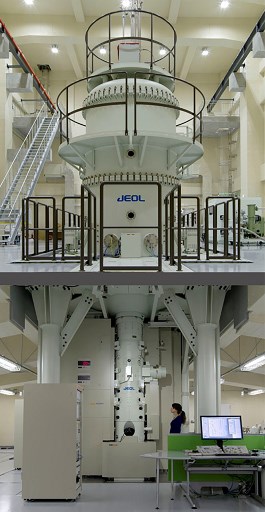
Two of the world’s most powerful microscopes suffered severe damage from a deadly earthquake that hit the western Japanese city of Osaka, causing delays in cutting-edge cell and atomic-level research, a scientist said June 29. / AFP PHOTO / Osaka University / Handout
TOKYO, Japan (AFP) — Two of the world’s most powerful microscopes suffered severe damage from a deadly earthquake that hit the western Japanese city of Osaka, causing delays in cutting-edge cell and atomic-level research, a scientist said Friday.
The two damaged units, both with price tags of 2.3 billion yen ($20 million), at Osaka University may not come back online until next year.
One 12-metre-high (40-feet) unit, captures 1,600 images of atomic-level substances per second, a capacity greater than any other microscope, said Hidehiro Yasuda, professor at the university’s Research Center for Ultra-High Voltage Electron Microscopy.
The other “three Megavolt ultra-high voltage electron microscope”, built in 1995, allows researchers to look at tiny biological material.
The microscopes have been used by a wide range of scientists, including those who analyse iPS cells, which could be used to make new drugs and in regenerative medicine.
The engineers who designed and built the unit in 1995 are unable to help in its reparation as they have long since retired or died, Yasuda told AFP.
“These microscopes are specially designed. There are no other units like these,” he said.
The 5.3-magnitude quake hit the western commercial hub of Japan on June 18, killing five and injuring more than 400.
© Agence France-Presse







